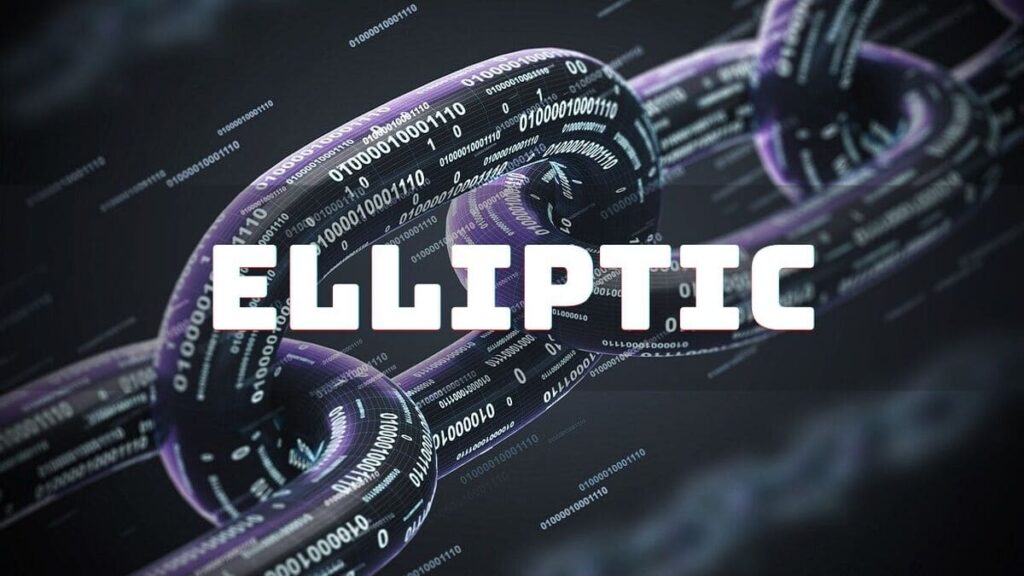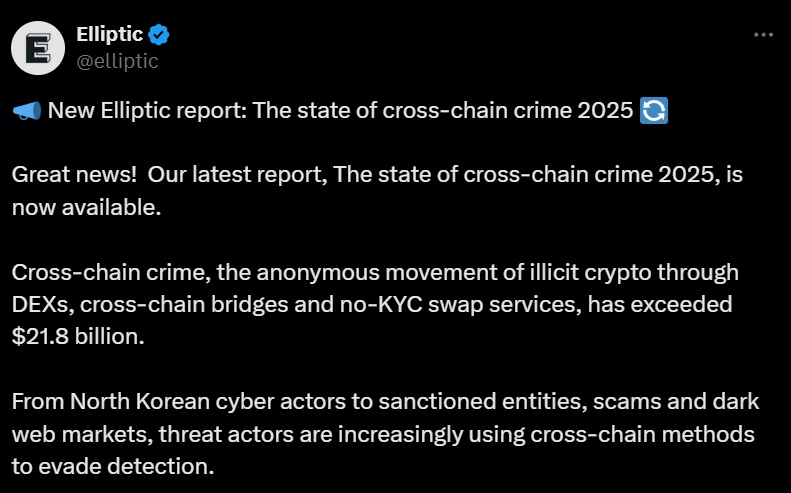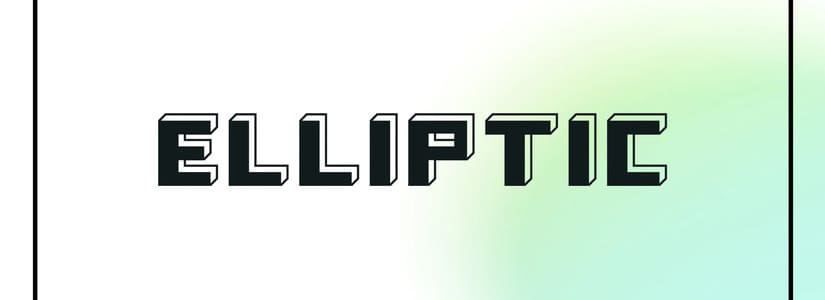TL;DR
- Crypto asset laundering through crosschain swaps has surpassed $21.8 billion, tripling 2023 figures according to Elliptic.
- Criminals split and chain transactions across blockchains to avoid detection.
- 25% of illicit funds that go through coin swap services end up on illegal gambling sites.
The use of crosschain tools to launder illicit funds has grown by over 200% in two years, according to a report by Elliptic.
The UK-based firm estimates that at least $21.8 billion in crypto from illegal or high-risk sources has flowed through blockchain swaps, up from $7 billion in 2023. North Korea is tied to 12% of that volume. These transactions are no longer limited to mixers or DEX sales: funds now jump across chains to obstruct forensic tracing.
Common methods include splitting funds across multiple blockchains simultaneously or moving them through chains in sequential hops. These tactics raise transaction costs but are effective at complicating investigations. Elliptic cites a 2025 case where hackers linked to the North Korean regime stole $75 million and moved the funds from Bitcoin to Ethereum, then to Arbitrum, Base, and finally Tron, using both evasive techniques.
In another case in the UK, a $200,000 fraud involved 90 different assets spread across several blockchains to fund gambling. Elliptic notes that about one-third of current blockchain investigations require tracking transactions across at least three different networks.
Elliptic Says 25% of Laundered Funds End Up on Illegal Gambling Sites
DEXs are also part of the laundering pipeline. While they operate on public blockchains, they serve as entry points for converting illiquid tokens into widely accepted assets like USDT or ETH, offering anonymity. In May, an exploit on Cetus on the Sui network led to the theft of over $200 million. The attacker swapped USDT for USDC, bridged the funds to Ethereum, and converted them to ETH via a DEX aggregator.
Coin swap services act like underground currency exchanges. They allow asset swaps across blockchains with no registration, no AML checks, and full opacity. Some even offer physical cash drops. Elliptic estimates that 25% of the funds moved through these services end up on unlicensed gambling sites, especially in Asia and Eastern Europe.
In response, blockchain analytics firms have developed tools like Elliptic Investigator, Chainalysis Storyline, and TRM Forensics to trace crosschain activity in minutes. As crypto laundering becomes more sophisticated, so do the tools used to track it













